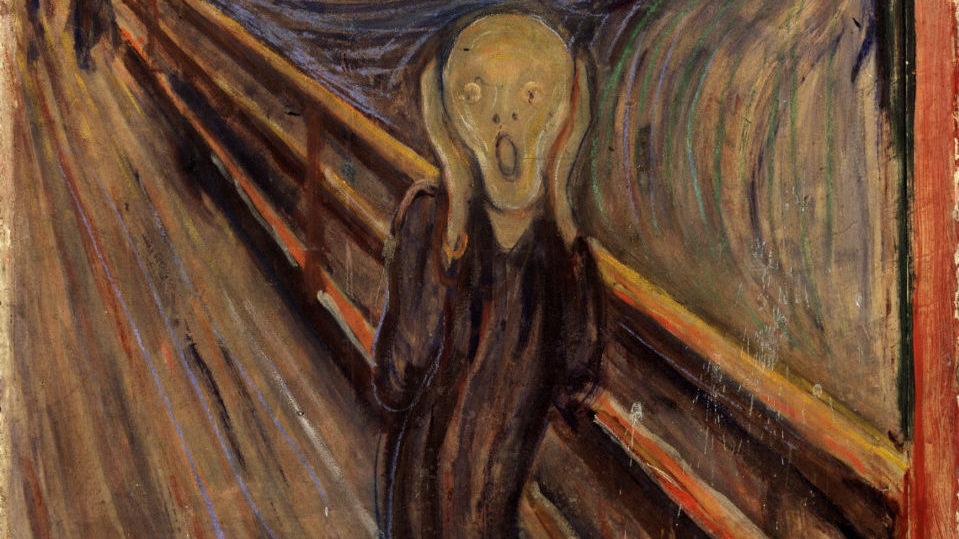They were in love for over 5 years, it was a perfect relationship. To the world they were one of the ideal couple. Why not, she loved him immensely, he was her prince charming. They looked so good together and got married against all odds. They knew they weren’t perfect but they had embraced each others imperfections, in fact they were entirely different. He was the quiet one and she talked so much that her jaws would hurt. She was also so unstable at times of crisis that she would turn her whole world upside down but he was the stable kind.. like a duck,calm on the surface but paddling like hell underwater. She believed in expressing love in a ‘larger than life’ way while he was the shy kind. She was so emotional and cried for everything while he kept things together doing what he does best, staying calm. All these differences seemed petty compared to the massive love they had for each other. Then something changed.
She started experiencing severe mood swings, one moment she would be very happy, energetic and talkative; the other minute she would be all irritated, furious and argumentative. She told him it was the periods (PMS). Sometimes the frequency would be so much that he started disregarding PMSing as an excuse for her behavioral instability, that would make her even more furious. He often made her feel that he didn’t care for her mental state at difficult times. She had never faced such problems earlier or may be the problem had grown over the period of time. They would have arguments over her short temper (which often was a cry for attention), the way he treated her when he was angry. He would tell her how worthless she made him feel. On one such occasion he even told her how getting married to her was the worst thing to happen to him. She started feeling terrible about herself. Her confidence level was so low that she became suicidal.But she was too smart to give in to such thoughts. It was then that she started feeling that she indeed had a problem.
It didn’t take long for her to realize that she was in fact bipolar in nature. Bipolar, to be precise, where her mania was not as destructive as they describe but a emotionally happier mood in which she would dramatically express love for her family (and mostly her husband whom she loved the most), spend extravagantly and talked non-stop (mostly positive things) and the depression mood was usually anger triggered by stress she couldn’t take, the attention she did not get, irritability, low self esteem and negative thoughts. It was traumatizing for her to come to this realization but what’s relieving is that it is not the worst things to happen to anyone. It could have been caused by anything, her genes or the childhood she spent away from home and the prolonged stress. She quickly knew it was the latter because she didn’t like that part of her life. Having lived away from home had affected her in more than one way.
She had always been bipolar, the teenage days when she would pick fights with her siblings, scream and even throw things at them.. a constant need for attention that she craved for, from those who loved her, the fights she had in her class, the long phases of depression caused by home sickness and the constant stress to top the class in academics. Her parents probably did not even know that such a behavioral change was called something. They thought she was being stubborn and short tempered.
Now she is married and her disorder was actually harming her relationship and affecting those around her. The mood swings of bipolar disorder can be profoundly destructive. During manic periods, she would feel reckless and volatile. Picking up the pieces after a mood episode is really hard. The people you need most, your family especially your spouse may be angry with you and reluctant to help. It makes the life of a bipolar person all the more difficult. That’s when suicidal thoughts occur. The feeling of being worthless in the eyes of those who mattered, the feeling of knowing you have a problem that you can’t help, kills you.
Here’s a little help to understand, treat and empathize with a bipolar partner
They say the best way to avoid these mood episodes is to get treatment/medication for bipolar disorder. But the periods of hypomania (her condition), mania (extremely elevated mood), or depression cannot be avoided. Even people on regular medication can have re lapses and mood swings. One they cannot provide complete cure and on top of it all these medications have side effects. That’s why it is important to keep track of one’s sleeping habits, change in moods and triggers so you know when emotional outbursts tend to happen before they develop into something serious.
An extra support from spouse an family really matters a lot for people with bipolar disorder. With quick intervention, it might be possible to stop a very minor mood swing from bringing a turmoil in a loving relationship.
Here are some Dos and Donts when you are in Bipolar Relationship
Marriages and commitment comes with huge responsibility and challenges. With a bipolar nature, the degree of difficulty suddenly gets a lot higher. It is not impossible to handle it, in fact people with bipolar nature can be extremely loving and romantic at times. They just need to be extremely mindful and sensitive. It takes effort from both the parties involved.
- First and foremost, accept your partner’s bipolar diagnosis. It can happen to anyone at any point of life, even you. That’s why you say ‘in sickness and health’. Love is a choice you make and a commitment for life. When you are ready to work at it, things become a lot more simpler.
- Do not provoke your partner when you are in a mood phase. In this state, they also might react and engage in conversations not very pleasant which will make the bipolar person furious and unreasonable, and there is no way you can reason with them.
- It takes a lot of work on part of both partners in making things easy and ensure that the relationship survives. Track their behaviors and reactions. Attending therapy sessions with your partner will help you understand why he or she act the way they do. You can help them learn better ways to react.
- Do not judge when the bipolar partner is acting out. Take a minute to understand where each of you are coming from, he or she is reacting to the world as he or she sees it. The situation might look simpler to you, but a bipolar mind is far more complicated than yours.
- Tell them about the things they are best at and how they make you proud. Boost your partner’s confidence. Tell how much you love him or her, there can’t be a better timing to show that extra love.
- Remember that bipolar people cannot handle a lot of stress, they can’t go without food for a long time. Be patient and help them as much as you can with their chores.
- During a mood phase, your partner may behave bad, In the sense they might do or say something brash or stupid. Step up and show them your support, even though you may be hurt. Don’t openly blame it on the condition or disorder. Give them a hug to show that you understand.
- Watch for triggers and behavior changes . You are in the best person to recognize the signs when your partner’s behavior/mood is changing. You can take precautions to not provoke him or her and this might help minor issues subside without causing major harm.
- In a world where there are more diseases than cure, it is relieving to know that some disorders can be controlled with love, support and therapy. Bipolar disorder is just a state of mind which thinks/reacts differently. Have a positive approach towards life and sooner or later your bipolar partner will start reflecting those thoughts.Often, people give up on their bipolar partner and declare the end of their relationship. Understand that your partner loves you too much to hurt you intentionally, he or she is helpless and a slave to his or her mind at this moment. Medication is not always the solution. A caring and loving partner is better than a therapist.As for that perfect couple, I am not sure if her husband realized what she is going through. Let’s hope that someday he understands that she is not the worst thing to happen to him after all.










